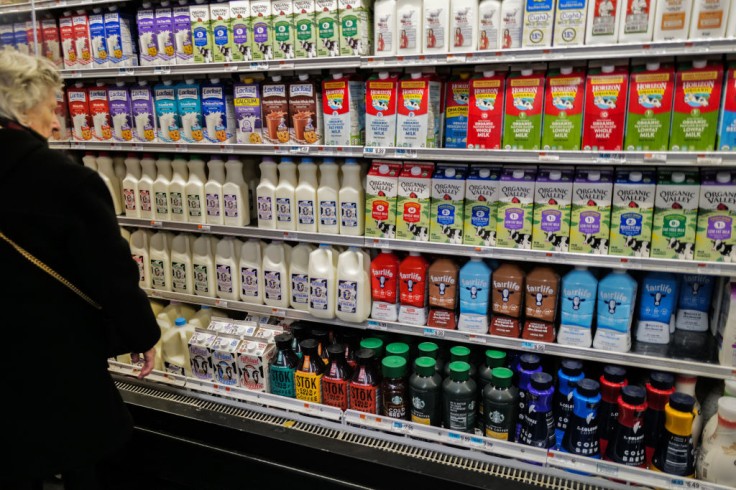
The U.S. Department of Agriculture released a federal directive on Wednesday imposing that dairy cows being transferred across state lines must go through testing for bird flu.
This order followed the Food and Drug Administration's announcement the day before, revealing the presence of bird flu virus fragments in samples of pasteurized milk on store shelves.
Dairy Cows Required to Undergo Bird Flu Testing
The FDA initiated a nationwide survey of commercially sold milk to pinpoint the source of the contaminated milk, with results expected soon.
In response to the outbreak detected at the end of March, farmers were initially instructed to discard milk from sick cows, and symptomatic cows were to be tested as per USDA guidance. However, the recent discovery of the virus in the commercial milk supply suggests these measures were insufficient.
The effectiveness of the new USDA mandate in containing the spread of the H5N1 bird flu strain among cattle nationwide remains uncertain.
The virus has been identified in dairy cows across eight states. Scientists are now investigating the extent and duration of the outbreak.
While H5N1 can be deadly in humans, it does not easily spread among them. Although one case of infection was reported in a dairy worker in Texas, it was mild, causing conjunctivitis.
The CDC assured the public that there is no evidence of increased illness due to H5N1 among people. Nevertheless, 44 individuals are under monitoring for potential illness.
In addition to pre-transport testing of dairy cows, the new order mandates that state veterinary labs report any positive tests to federal health authorities. Cows testing positive must undergo a 30-day waiting period before retesting and movement.
The concern is not about human transmission through milk consumption, as the pasteurization process is expected to kill any virus.
While the FDA is yet to complete studies on pasteurization's effectiveness against the bird flu virus, it maintains that the commercial milk supply remains safe. Further studies by the FDA on pasteurization's impact on the bird flu virus are forthcoming.
Read Also: Exploring the Advantages of Swimming for Young Children: What Benefits Can Kids Derive from It?
USDA Carries Out Additional Tests on Cattle
Over the past few weeks, the USDA has conducted more than 2,000 tests on cattle samples. Dairy cows must test negative for influenza A virus, including bird flu, at an approved laboratory before interstate transportation, with owners of positive-tested cows required to provide epidemiological information.
Richard Webby, director of the World Health Organization's Collaborating Center for Studies on the Ecology of Influenza in Animals and Birds, emphasized the importance of testing cows before transport to prevent virus spread.
Positive tests will delay cow movement for 30 days until they test negative, although dairy cattle typically recover from bird flu, unlike chickens and turkeys.
The USDA estimates needing about $500 million to address outbreaks in dairy cows, commercial poultry flocks, wild birds, and potentially other species.
It plans to request funds from the Commodity Credit Corporation. The Meat Institute called for additional testing to ensure beef safety and protect meatpacking workers from infection, although USDA asserts confidence in the meat supply's safety.
While USDA microbiologists identified a change in an H5N1 sample from a cow in Kansas, indicating potential adaptation to mammals, it does not affect viral transmission. The department maintains that the virus shows no increased transmissibility among humans or between them.